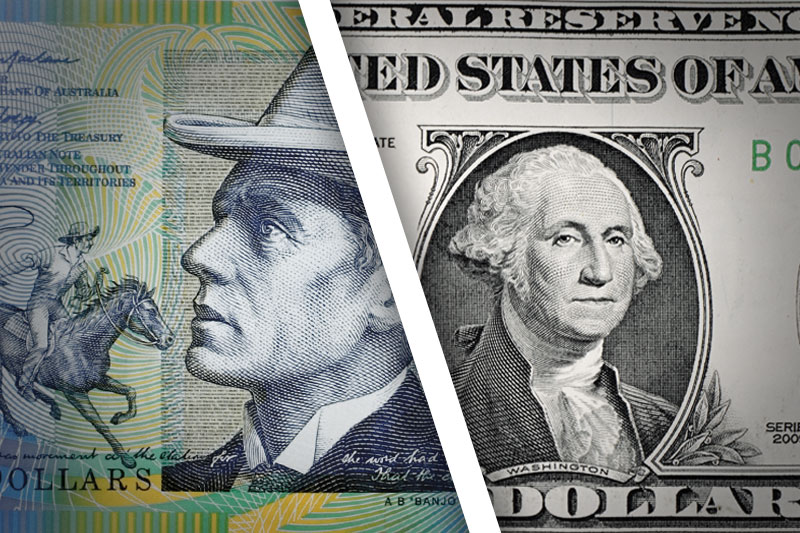Investing.com - The Australian dollar edged lower against its U.S. counterpart on Monday, as global growth concerns continued to weigh on market sentiment, while investors eyed meetings by the European Central Bank and the Federal Reserve amid expectations for more easing measures.
AUD/USD hit 1.0450 during late Asian trade, the daily low; the pair subsequently consolidated at 1.0461, fell 0.21%.
The pair was likely to find support at 1.3083, the low of July 27 and resistance at 1.0557, the high of March 27.
The risk-related Aussie was boosted last week, after European Central Bank President Mario Draghi pledged to do whatever was necessary to protect the euro zone from collapse, fueling hopes that the ECB would act to lower borrowing costs for highly indebted countries such as Spain and Italy.
German Chancellor Angela Merkel and French President François Hollande vowed to defend the euro in a joint statement on Friday and said that they are "deeply committed to the integrity of the euro zone."
Investors remained cautious however as German Economy Minister Philipp Roesler warned the ECB earlier about any large-scale government bond purchases.
Markets were also looking ahead to the outcome of the Federal Reserve’s policy setting meeting on Wednesday, amid speculation over whether the bank will hint at further easing measures.
In Australia, industry data showed that new home sales rose 2.8% in June, after a 0.7% increase the previous month.
Elsewhere, the Aussie was steady against the New Zealand dollar with AUD/NZD inching up 0.06%, to hit 1.2946.
Also Monday, official data showed that building consents in New Zealand rose 5.7% in June, following a 7.2% decline the previous month.
AUD/USD hit 1.0450 during late Asian trade, the daily low; the pair subsequently consolidated at 1.0461, fell 0.21%.
The pair was likely to find support at 1.3083, the low of July 27 and resistance at 1.0557, the high of March 27.
The risk-related Aussie was boosted last week, after European Central Bank President Mario Draghi pledged to do whatever was necessary to protect the euro zone from collapse, fueling hopes that the ECB would act to lower borrowing costs for highly indebted countries such as Spain and Italy.
German Chancellor Angela Merkel and French President François Hollande vowed to defend the euro in a joint statement on Friday and said that they are "deeply committed to the integrity of the euro zone."
Investors remained cautious however as German Economy Minister Philipp Roesler warned the ECB earlier about any large-scale government bond purchases.
Markets were also looking ahead to the outcome of the Federal Reserve’s policy setting meeting on Wednesday, amid speculation over whether the bank will hint at further easing measures.
In Australia, industry data showed that new home sales rose 2.8% in June, after a 0.7% increase the previous month.
Elsewhere, the Aussie was steady against the New Zealand dollar with AUD/NZD inching up 0.06%, to hit 1.2946.
Also Monday, official data showed that building consents in New Zealand rose 5.7% in June, following a 7.2% decline the previous month.
